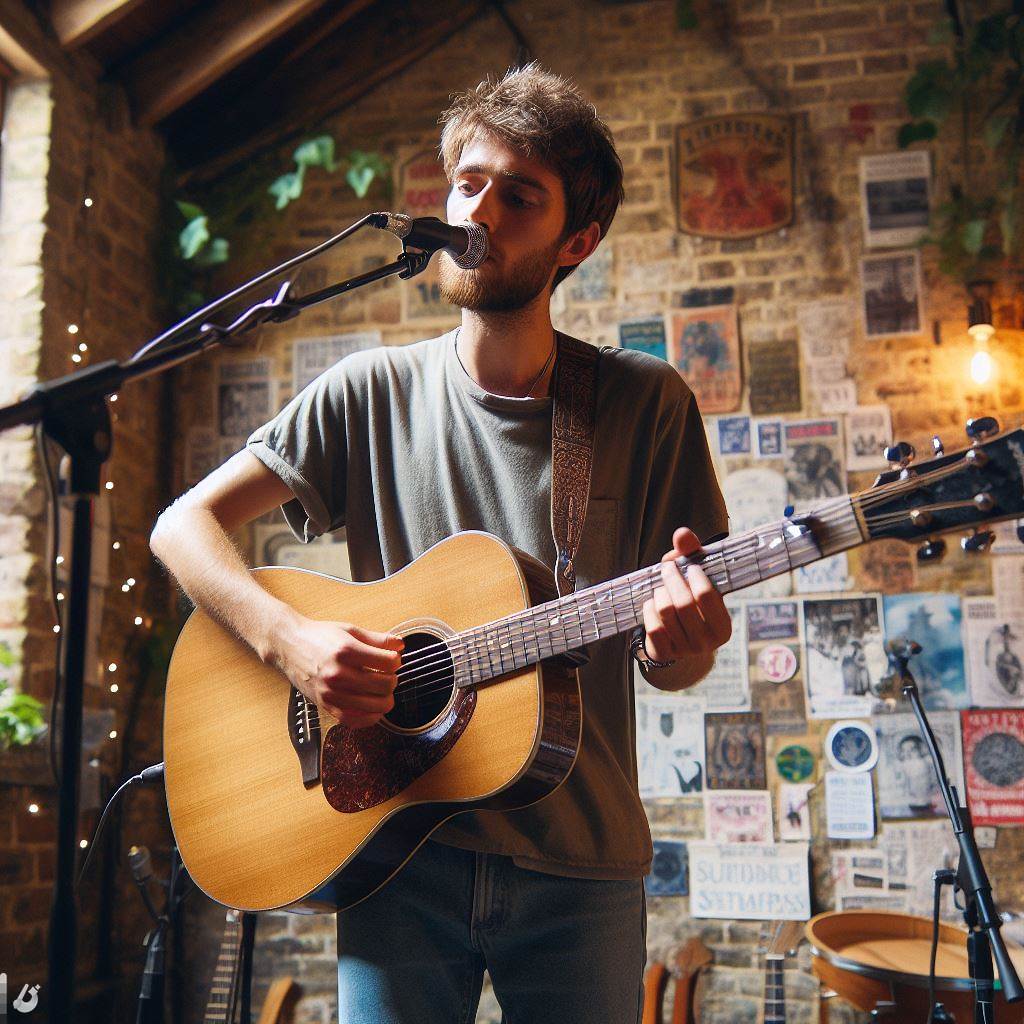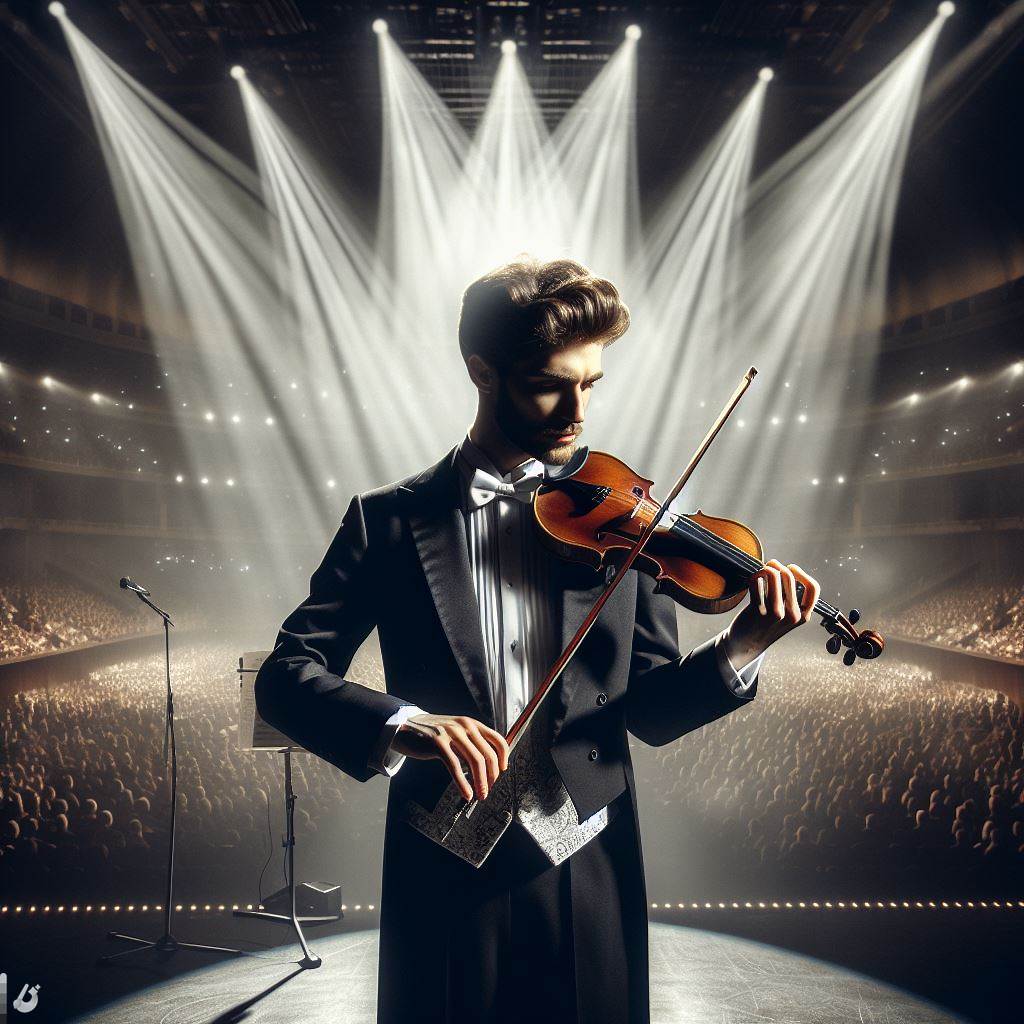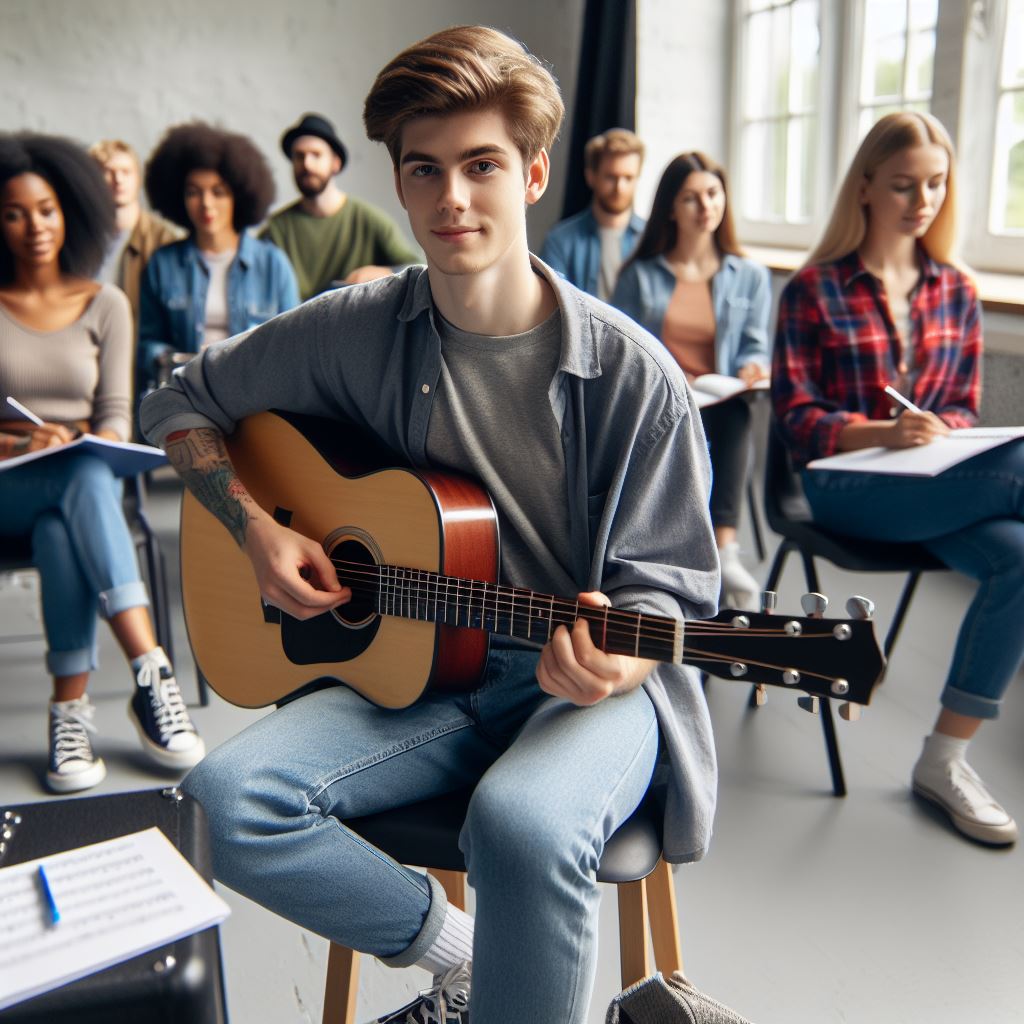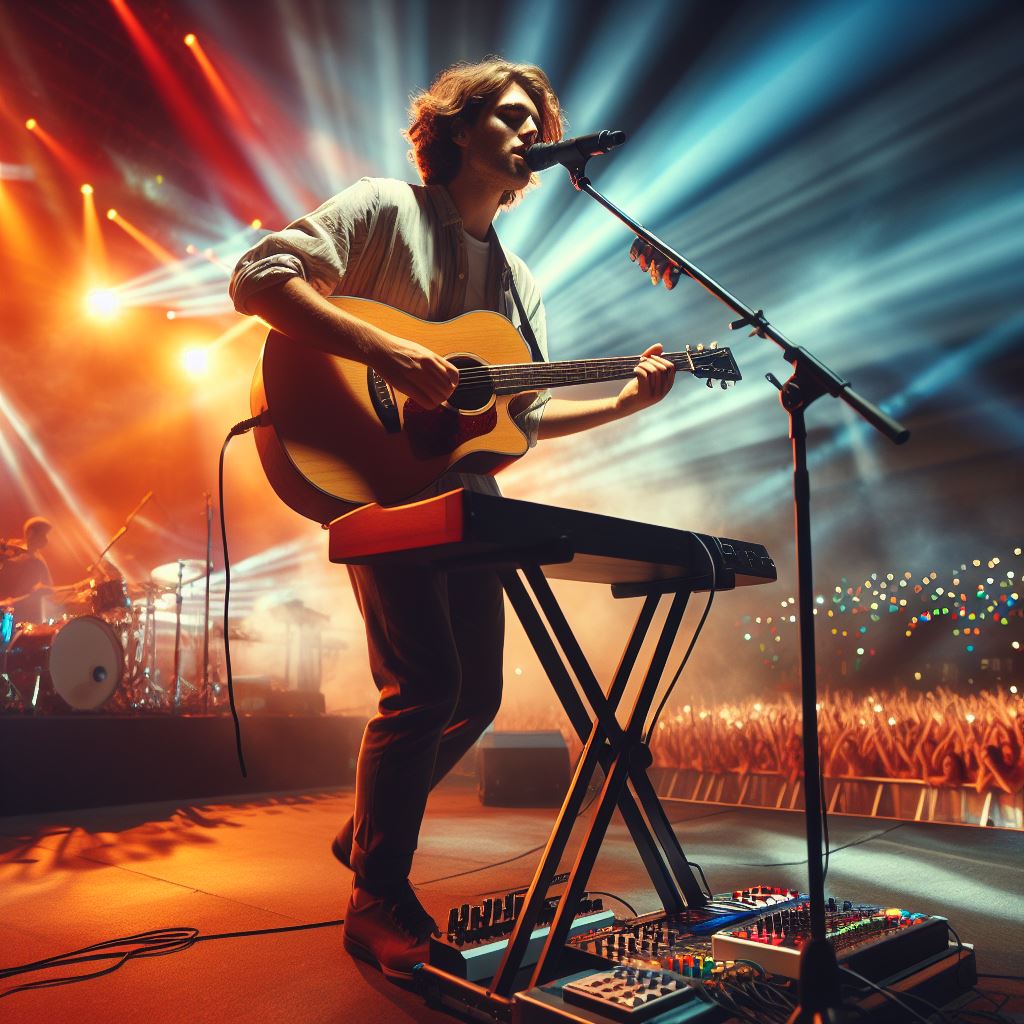Introduction
Social media has become an integral part of the modern music industry.
It is a powerful tool that musicians can use to connect with their fans, promote their music, and grow their careers.
In this blog post, we will explore some tips for effective social media usage for musicians in the UK.
Firstly, it is important to understand that social media is not just about promoting your music.
It is also about building a relationship with your fans.
By engaging with your fans on social media, you can create a loyal following that will support you throughout your career.
Secondly, it is important to choose the right social media platforms for your music.
Different platforms have different audiences, and it is important to choose the ones that are most relevant to your music.
For example, if you are a musician who produces electronic music, you may want to focus on platforms like SoundCloud and Mixcloud.
Thirdly, it is important to be consistent with your social media presence.
This means posting regularly and engaging with your fans on a regular basis.
By doing so, you can keep your fans engaged and interested in your music.
Basically, it is important to be creative with your social media content.
This means experimenting with different types of content, such as photos, videos, and live streams.
By doing so, you can keep your fans engaged and interested in your music.
Personalized UK Career Consulting
Receive tailored career guidance designed just for you. Get actionable steps and expert support to boost your career in 1-3 days. Take control of your career now.
Get StartedBy following these tips, you can use social media to your advantage and take your music career to the next level.
Importance of Social Media for Musicians
A strong presence on social media platforms is crucial for musicians in the UK, as it allows them to establish a direct line of communication with their fans.
Direct Line of Communication with Fans
Social media platforms, such as Facebook, Twitter, and Instagram, offer an invaluable opportunity for musicians to interact with their fanbase.
By regularly posting updates, photos, and videos, musicians can keep their fans informed about their latest projects, tours, and releases.
This direct line of communication allows musicians to receive instant feedback from their fans, fostering a strong sense of connection and loyalty.
Furthermore, social media platforms enable musicians to respond to comments, messages, and even engage in live video chats, providing a unique and personal experience for their fans.
Increased Visibility and Reach
Social media is a powerful tool that helps musicians increase their visibility and reach a wider audience.
By utilizing platforms like Spotify, SoundCloud, and YouTube, musicians can showcase their talent and gain exposure to millions of potential new fans.
Through regular updates and engaging content, musicians can capture the attention of influential individuals within the music industry, such as record labels, promoters, and producers.
This increased visibility on social media can lead to exciting opportunities, including collaborations, festival slots, and even record deals.
Building an Engaged Fan Base
Social media plays a significant role in building and nurturing an engaged fanbase for musicians.
By consistently sharing high-quality content, musicians can create a loyal community of fans who eagerly anticipate their next release or performance.
Through social media, musicians can also build anticipation and generate buzz around their music by teasing snippets, sharing behind-the-scenes footage, and creating interactive experiences.
Social media platforms provide a platform for musicians to showcase their personality, creativity, and authenticity, allowing fans to connect with them on a deeper level.
Your Dream Job Starts with a Perfect CV
Get a tailored CV and cover letter that captures your unique strengths and stands out in your industry. Let us help you make an unforgettable first impression.
Get StartedEngagement is key, and by actively responding to comments, hosting Q&A sessions, and even organizing fan events, musicians can foster a strong and dedicated fanbase.
Moreover, social media platforms enable musicians to gather valuable insights about their audience, such as demographics, interests, and preferences, which can inform future content creation and marketing strategies.
Generally, social media is essential for musicians in the UK as it provides a direct line of communication with fans, increases their visibility, and helps in building a strong and engaged fanbase.
By leveraging these platforms effectively, musicians can enhance their career prospects, expand their reach, and create lasting connections with their audience.
Read: Health & Wellness Tips for UK Musicians
Choosing the Right Social Media Platforms
Popular social media platforms used by musicians in the UK
In today’s digital age, social media has become an essential tool for musicians to connect with their fans, promote their music, and build their brand.
With a plethora of social media platforms available, it is crucial for musicians in the UK to choose the right ones that align with their goals and target audience.
1. Facebook
- With over 2.8 billion monthly active users worldwide, Facebook remains one of the most popular social media platforms for musicians in the UK.
- Musicians can create fan pages, post updates, share videos, and engage with their fans through comments and direct messages.
- Facebook’s age demographic is diverse, making it an excellent platform for targeting a wide range of audiences.
2. Instagram
- Known for its visual appeal, Instagram is a favorite platform for musicians to showcase their talent through stunning photos and videos.
- Musicians can utilize features like Stories and Live sessions to connect with fans in real-time and share exclusive content.
- Instagram’s user base comprises predominantly younger audiences, making it ideal for musicians focusing on younger demographics.
Different platforms cater to different target audiences
Each social media platform has its own unique features and user demographics, catering to different target audiences.
It is crucial for musicians to understand which platforms their target audience is most likely to use to optimize their social media presence.
- Twitter: Twitter is widely known for its fast-paced, real-time updates and concise nature, making it perfect for musicians to share short news updates, promotional activities, and engage in conversations. The platform has a younger audience, mainly ranging from early teens to late twenties, attracting those who prefer quick updates and real-time conversations.
- YouTube: Being the go-to platform for video content, YouTube allows musicians to share their music videos, live performances, interviews, and behind-the-scenes content. Musicians can also monetize their content on YouTube, making it a viable platform for income generation through ads and sponsorships.
Tips for identifying the best-suited platforms for individual musicians
- Define your target audience: Understanding your target audience’s age group, interests, and online behavior is essential in identifying which platforms they are likely to use.
- Research popular platforms among similar musicians: Study successful musicians in your genre and analyze which platforms they use effectively to engage with their audience.
- Experimentation: Test different platforms by starting with a few, analyzing their performance, and gradually expanding your social media presence on the ones that yield the best results.
- Analyze platform-specific features: Each platform offers unique features that cater to specific engagement styles. Evaluate which features align with your goals and optimize your content accordingly.
- Consistency is key: Regardless of the platforms you choose, maintaining a consistent online presence is crucial. Regularly engage with your audience, post updates, and share new content to keep your fans interested and involved.
By carefully selecting the right social media platforms, musicians in the UK can effectively connect with their target audience, build a strong online presence, and enhance their music career.
Read: The UK Musician’s Guide to Copyright Laws
Creating an Engaging Social Media Profile
The Importance of a Well-Crafted Bio and Profile Picture
- A well-crafted bio and profile picture are crucial for making a strong first impression.
- The bio should be concise, captivating, and reflect the musician’s unique identity and style.
- A profile picture that is visually appealing and representative of the musician’s image helps grab attention.
Tips on Optimizing the Bio and Profile Picture to Reflect the Musician’s Brand
- Define the musician’s brand identity, focusing on their genre, personality, and target audience.
- Use keywords related to the musician’s music style and interests to optimize the bio and attract relevant followers.
- Include links to the musician’s website, other social media accounts, and relevant music platforms.
- Mention notable achievements, collaborations, or upcoming projects to increase credibility and intrigue.
The Role of High-Quality Content and Consistent Posting Frequency in Keeping Followers Engaged
- High-quality content is essential to engage followers and attract new ones.
- Share a variety of content, including behind-the-scenes footage, sneak peeks, live performances, and music releases.
- Posting consistently helps maintain followers’ interest and visibility in their social media feed.
- Experiment with different formats like photos, videos, live streams, and stories to keep the content fresh.
- Interact with followers by responding to comments, asking questions, and initiating conversations.
- Collaborate with other musicians or influencers to expand the reach and create engaging content together.
- Use analytics tools to track engagement levels and adapt the content strategy accordingly.
- Seek feedback from followers and learn from their preferences to continuously improve and refine the content.
- Explore creative ways to promote the musician’s brand and engage followers, such as contests, exclusive content, or merchandise giveaways.
- Regularly update the profile picture to show freshness, growth, or align with new projects to maintain relevancy.
Essentially, creating an engaging social media profile is crucial for connecting with fans, attracting new followers, and establishing a strong brand presence in the music industry.
By crafting a compelling bio, optimizing the profile picture, sharing high-quality content, and maintaining consistent engagement, musicians can foster a loyal fan base and create opportunities for their music to thrive in the digital age.
Read: Balancing Gigs & Life: UK Musicians’ Tips
Optimize Your LinkedIn for Success
Boost your LinkedIn profile with a professional bio, keyword-rich headline, and strategic recommendations that attract recruiters. Stand out from the crowd and get noticed.
Optimize NowInteracting with Followers and Building a Community
Responding promptly to comments, messages, and mentions
Engaging with your followers in a timely manner is crucial for building a strong online presence.
When someone takes the time to comment on your posts, message you, or mention you, make it a priority to respond promptly.
Replying to comments shows that you value your followers’ opinions and contributions.
It also encourages more engagement and fosters a sense of community around your music.
By promptly addressing messages and mentions, you show that you care about your fans and appreciate their support.
Tips for creating meaningful interactions with followers
Building a loyal fan base requires more than just responding to comments.
To create meaningful interactions, consider the following tips:
- Be genuine: Avoid generic responses and personalize your interactions. Show a genuine interest in what your followers have to say.
- Ask questions: Encourage engagement by asking open-ended questions. This prompts your followers to share their thoughts and experiences, creating a more dynamic conversation.
- Show appreciation: Take the time to thank your followers for their support. Whether it’s a simple “thank you” comment or a shoutout in your posts, expressing gratitude reinforces their loyalty.
- Share behind-the-scenes content: Give your followers a glimpse into your creative process and daily life. This kind of content builds a deeper connection and makes them feel like they’re part of your journey.
- Collaborate with your audience: Encourage user-generated content by hosting contests or challenges. Involve your followers in your music-making process, and showcase their contributions and talent.
Authenticity and personal connection in fostering a sense of community
Establishing a genuine connection with your followers is essential for fostering a sense of community. Here’s how you can achieve authenticity:
- Share your story: Open up about your journey as a musician. Be transparent about your successes, failures, and the challenges you faced. This vulnerability helps followers relate to you on a deeper level.
- Be relatable: Show your personality and quirks. Let your followers see the real you beyond the music. Sharing relatable experiences creates a stronger bond with your audience.
- Be consistent: Maintain a consistent online presence to build trust and credibility with your followers. Stick to a regular posting schedule and show up consistently on social media platforms.
- Encourage conversations: Create a safe space for your followers to express themselves by inviting discussions on important topics. Encourage diversity of opinions and foster respectful exchanges.
- Support other musicians: Promote collaboration and show support for fellow musicians. By uplifting other artists, you contribute to a positive and inclusive community.
In general, interacting with your followers is a vital aspect of building a successful social media presence as a musician.
Responding promptly, creating meaningful interactions, and fostering authenticity all contribute to a loyal fan base and a strong sense of community.
Embrace these strategies to engage your followers and cultivate a dedicated online following in the UK’s music scene.
Read: Earning as a Musician in the UK Today
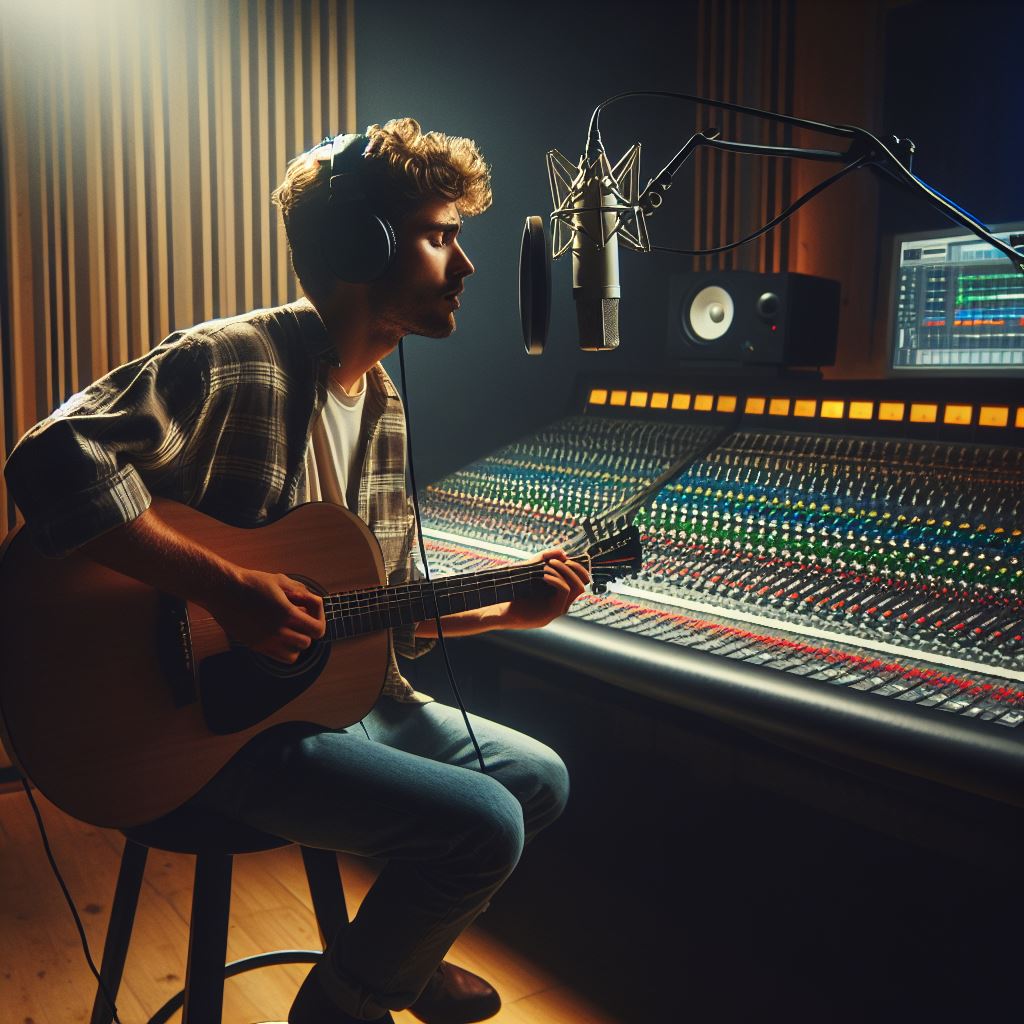
Leveraging Social Media for Promotions and Collaborations
Ways to promote music and upcoming events on social media
- Create engaging and visually appealing content to grab the attention of followers.
- Utilize hashtags relevant to the music genre and target audience to increase visibility.
- Share snippets or teasers of upcoming releases to generate curiosity and anticipation.
- Offer exclusive discounts or free downloads to followers as incentives for engagement.
- Collaborate with other musicians or bands for cross-promotion and reaching new audiences.
- Utilize Facebook events and event invites to inform followers about upcoming gigs or concerts.
- Run contests or giveaways on social media platforms to increase engagement and buzz.
- Regularly interact with followers by responding to comments and direct messages to build connection.
- Share behind-the-scenes footage or stories to provide a personal touch and make followers feel involved.
- Collaborate with local venues or promoters for joint promotions and increased exposure.
The role of collaborations with other artists, influencers, or brands
- Collaborate with established musicians to tap into their fan base and gain more exposure.
- Working with influencers allows musicians to reach a wider audience through their followers.
- Partnering with relevant brands can lead to sponsorships, endorsements, and increased credibility.
- Cross-promotion with other artists or brands can create a mutually beneficial relationship.
- Collaborations can lead to creative growth and inspiration, resulting in unique musical projects.
- Expanding reach through collaborations increases the chances of being discovered by new fans.
- Joining forces with influencers or brands can help in organizing successful promotional campaigns.
- Collaborating with musicians from different genres introduces fans to diverse musical styles.
- Joint projects can lead to increased media coverage and attention from industry professionals.
- Collaborations foster networking and relationship-building opportunities within the music industry.
Tips on effectively leveraging social media for promotional activities
- Consistency is key – maintain a regular posting schedule to keep followers engaged.
- Use high-quality visuals and multimedia to make posts visually appealing and shareable.
- Utilize data analytics to understand which platforms and content perform best for targeted promotions.
- Engage with and show appreciation for followers, turning them into loyal fans and ambassadors.
- Research and utilize relevant hashtags to expand the reach and visibility of social media posts.
- Stay up-to-date with current trends to create content that resonates with the target audience.
- Encourage user-generated content by asking followers to share their experiences with the music.
- Collaborate with social media influencers who align with the music’s genre and target audience.
- Interact with other musicians and industry professionals to build connections and collaborations.
- Experiment with different types of content, such as live performances, interviews, or acoustic sessions.
By implementing these strategies, musicians in the UK can effectively promote their music and events, expand their reach, and establish a strong presence on social media.
Learn More: Acting in London: Opportunities and Challenges
Analyzing Social Media Metrics and Adjusting Strategies
Importance of tracking and analyzing social media metrics
- Social media metrics provide valuable insights into the performance and impact of your social media strategies.
- Tracking metrics helps you understand your audience’s behavior, engagement levels, and preferences.
- Analysis of these metrics enables you to optimize your content, identify trends, and make informed decisions.
- Metrics also help you measure the success of campaigns, reach, conversions, and return on investment.
Tips for musicians to utilize analytics and evaluate social media strategies
- Identify relevant metrics such as follower count, engagement rate, reach, and click-through rates.
- Use social media analytics tools to track and measure these metrics on platforms like Facebook, Instagram, and Twitter.
- Regularly review your analytics data to understand what type of content resonates the most with your audience.
- Identify the best-performing posts and replicate their elements in future content creation.
- Monitor engagement metrics to gauge the effectiveness of your call-to-actions and audience response.
Importance of adapting and adjusting strategies based on analytics insights
- Analyzing social media metrics helps you identify areas of improvement and areas where you excel.
- Spotting trends and patterns in the data allows you to align your strategies with audience preferences.
- Adjust your content strategy based on which platforms drive the most engagement and growth for your music.
- Allocate resources to platforms that yield the highest return on investment in terms of audience reach and conversions.
- Regularly update your social media strategies to keep up with changing algorithms and evolving audience behaviors.
Importance of tracking and analyzing social media metrics
Social media metrics are crucial for musicians in the UK to understand the impact of their online presence.
By tracking and analyzing these metrics, musicians can make informed decisions to optimize their social media strategies.
Firstly, tracking social media metrics provides valuable insights into your audience’s behavior and engagement levels.
Metrics such as follower count, engagement rate, reach, and click-through rates help you understand how your audience interacts with your content.
This understanding allows you to tailor your strategies to better cater to their preferences.
Tips on how musicians can utilize analytics to evaluate the effectiveness of their social media strategies
Additionally, analyzing social media metrics helps optimize your content.
By regularly reviewing analytics data, you can identify the types of posts that resonate the most with your audience.
Look for patterns in the best-performing posts and replicate their elements in future content creation.
This way, you can consistently deliver content that appeals to your audience’s interests.
Monitoring engagement metrics is crucial in evaluating the effectiveness of your call-to-actions and audience response.
A high engagement rate indicates that your audience is actively interested in your music and brand.
If engagement levels are low, it may be necessary to reevaluate your approach and make improvements.
Importance of adapting and adjusting strategies based on the insights gained from analytics
Adapting and adjusting strategies based on insights gained from analytics is essential for sustained growth.
By identifying areas of improvement and areas where you excel, you can refine your strategies accordingly.
Spotting trends and patterns in the data allows you to align your social media campaigns with audience preferences, ensuring your content resonates with your target audience.
It’s also important to adjust your content strategy based on the platforms that yield the most engagement and growth for your music.
Allocate your resources, time, and energy to platforms that offer the highest return on investment in terms of audience reach and conversions.
By focusing on the channels that deliver the best results, you can maximize your visibility and impact.
Lastly, regularly updating your social media strategies is crucial in the dynamic world of social media.
Platforms constantly change their algorithms, and audience behaviors evolve.
Flexibility and adaptability are key to staying relevant.
Continuously analyze your metrics, stay up to date with trends, and adjust your strategies accordingly to ensure long-term success in the ever-changing social media landscape.
In essence, tracking and analyzing social media metrics are essential for musicians in the UK.
Through analytics, musicians can gain valuable insights into their audience’s behavior, optimize their content, and make informed decisions.
By adapting and adjusting strategies based on analytics insights, musicians can ensure that their social media efforts align with their audience’s preferences and maximize their impact.
Conclusion
A successful social media presence can greatly benefit musicians in the UK, providing them with a powerful tool to grow their careers.
In this blog post, we have discussed some key tips for musicians to effectively utilize social media platforms.
Firstly, it is important to identify the target audience and choose the appropriate social media platforms to engage with them.
Additionally, musicians should regularly post high-quality content and engage with their followers to build a loyal fan base.
We have also emphasized the importance of using social media to promote upcoming gigs, releases, and events, as well as collaborating with other artists, producers, and influencers to expand their reach.
Furthermore, analytics tools can provide valuable insights into the performance of social media campaigns, allowing musicians to make informed decisions and optimize their strategies.
In a nutshell, social media has become an indispensable tool for musicians in the UK to connect with fans, promote their music, and grow their careers.
By implementing the tips discussed in this blog post, musicians can harness the power of social media to elevate their presence in the industry.
We invite readers to share their own experiences and tips in the comments section below, as social media is a rapidly evolving landscape that benefits from shared knowledge and experiences.

